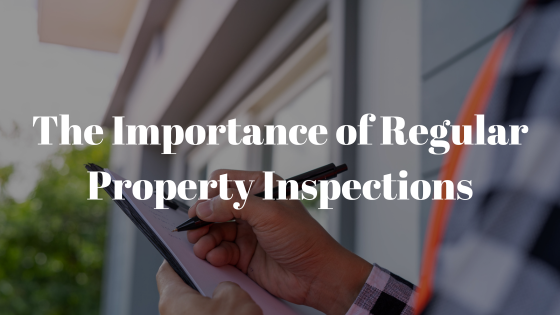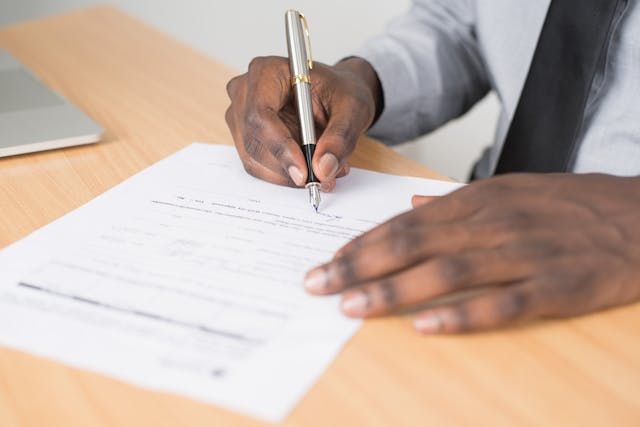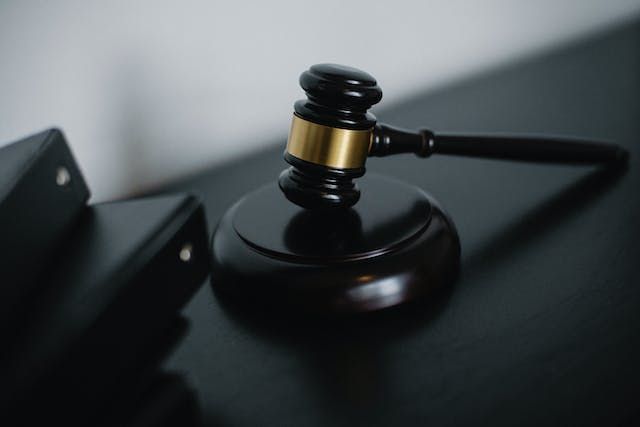The Importance of Regular Property Inspections

Owning rental properties can be a profitable investment, but it also comes with its fair share of responsibilities.
One of the most critical tasks for landlords is conducting regular property inspections. While it may seem like a tedious chore, the benefits of these inspections far outweigh the inconvenience.
Regular property inspections help maintain the property's condition, ensure tenant compliance, and protect the landlord's investment. Here are the reasons why property inspections are so essential and how they can be conducted effectively:
How Regular Property Inspections are Beneficial
Maintaining Property Condition
The primary purpose of regular property inspections is to ensure that the property remains in good condition. Over time, wear and tear are inevitable, and catching small issues early can prevent them from becoming significant problems.
For instance, a minor leak under the sink, if left unchecked, can lead to extensive water damage, mold growth, and costly repairs. Regular inspections can identify such issues early, allowing for timely repairs and maintenance.
Routine inspections also help maintain the aesthetic appeal of the property. A well-kept property is more attractive to prospective tenants and can command higher rent.
Ensuring Tenant Compliance
Another critical aspect of regular property inspections is ensuring tenant compliance with the
lease agreement. Tenants are responsible for taking care of the property and adhering to the rules outlined in the lease. Inspections provide landlords with the opportunity to verify that tenants are fulfilling their obligations.

For example, the lease agreement may prohibit smoking inside the property or keeping pets without permission. Regular inspections can help landlords identify any violations of these terms.
Addressing such issues promptly can prevent damage to the property and maintain a harmonious landlord-tenant relationship.
Protecting the Investment
Real estate is a significant investment. Regular property inspections are a proactive way to safeguard your assets. By keeping the property in good condition and ensuring tenant compliance, landlords can prevent potential issues that could devalue the property.
Inspections also help in identifying any unauthorized modifications or alterations made by tenants. These changes can sometimes compromise the property's structural integrity or violate local building codes.
Building a Positive Relationship with Tenants
Regular property inspections can also contribute to building a positive relationship with tenants. When landlords show that they care about the property's condition, it sends a message to tenants that they are committed to providing a safe and comfortable living environment. This can lead to higher tenant satisfaction and longer tenancy periods.
Open communication during inspections allows tenants to voice any concerns or issues they may have. Addressing these concerns promptly can prevent small problems from escalating and show tenants that their well-being is a priority for the landlord.
Complying with Legal and Insurance Requirements
In some jurisdictions, regular property inspections are a legal requirement. Failing to comply with these regulations can result in fines or other penalties. Landlords should familiarize themselves with
local laws regarding property inspections to ensure they meet all legal obligations.

Additionally, regular inspections can be a requirement of the landlord's insurance policy. Insurance companies often require proof of regular maintenance and inspections to process claims related to property damage.
How to Conduct Effective Property Inspections
Schedule Inspections Regularly
Landlords should schedule inspections at regular intervals, such as quarterly or biannually. This ensures that any issues are identified and addressed promptly. Providing tenants with advance notice of inspections is not only courteous but also often a legal requirement.
Communicate with Tenants
Effective communication with tenants is essential during inspections. Landlords should explain the purpose of the inspection and address any tenant concerns. Providing feedback on the property's condition and any necessary repairs can help maintain a positive landlord-tenant relationship.
Use a Checklist
A comprehensive inspection checklist can help landlords ensure they cover all critical areas of the property. The checklist should include items such as plumbing, electrical systems, heating and cooling systems, structural elements, and any appliances provided by the landlord.
Document Findings
During the inspection, landlords should document their findings with detailed notes and photographs. This documentation can serve as evidence in case of disputes with tenants or for insurance claims, as well as providing a record of the property's condition over time.

Keep Records
Maintaining thorough records of all inspections, repairs, and communications with tenants is essential. These records can be invaluable in case of legal disputes, insurance claims, or future property sales. Organized records also help landlords track the property's maintenance history and plan for future repairs.
Follow Up on Issues
If any issues are identified during the inspection, landlords should take prompt action to address them. This not only prevents further damage but also demonstrates to tenants that the landlord is proactive and responsible.
Conclusion
Regular property inspections are a vital part of effective property management for landlords. They help maintain the property's condition, ensure tenant compliance, protect the investment, and build positive relationships with tenants.
By conducting thorough and systematic inspections, landlords can prevent small issues from becoming significant problems and ensure their rental properties remain safe, attractive, and valuable.
If you don’t want to do this on your own, it’s recommended to work with a professional and reliable property management company like
Dawson Property Management to ensure compliance. Contact us today!







